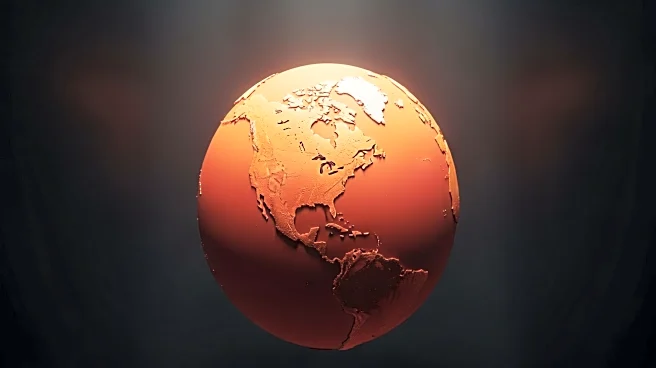Rapid Read • 8 min read
Despite the ongoing war in Ukraine, the United States and Europe continue to engage in significant trade with Russia. President Trump has threatened to impose a 25% tariff on India and higher tariffs on other countries purchasing Russian oil, aiming to pressure Russia to end the conflict. However, trade between the US and Russia has decreased by about 90% since the invasion, yet the US still imported $3 billion worth of goods from Russia last year. The European Union, a partner in sanctions against Russia, imported $41.9 billion worth of goods from Russia in 2024. The EU has made strides to reduce dependency on Russian imports, with a significant drop in imports since 2022.
AD
The continued trade with Russia by the US and Europe highlights the complexities of international economic relations amid geopolitical conflicts. While sanctions aim to pressure Russia, the ongoing trade indicates a reliance on Russian commodities such as fertilizer, palladium, uranium, and plutonium. For Europe, oil and natural gas remain significant imports despite efforts to diversify sources. This situation underscores the challenges in balancing economic interests with political strategies. The trade dynamics also affect global markets, influencing prices and availability of key resources.
The US and EU may continue to seek alternative sources for commodities currently imported from Russia, potentially increasing trade with countries like Canada. The ongoing tariff negotiations and trade wars could further impact strategic approaches to the Russia problem. Additionally, the presence of Western companies in Russia may face increased scrutiny, potentially leading to more corporate exits as the conflict persists.
The ethical implications of continued trade with Russia amid the Ukraine conflict raise questions about the effectiveness of sanctions and the role of economic pressure in geopolitical strategies. The presence of Western companies in Russia may contribute to a sense of normalcy for the Russian population, complicating efforts to isolate the Kremlin economically. This situation reflects broader challenges in leveraging economic tools for political ends.
AD
More Stories You Might Enjoy











